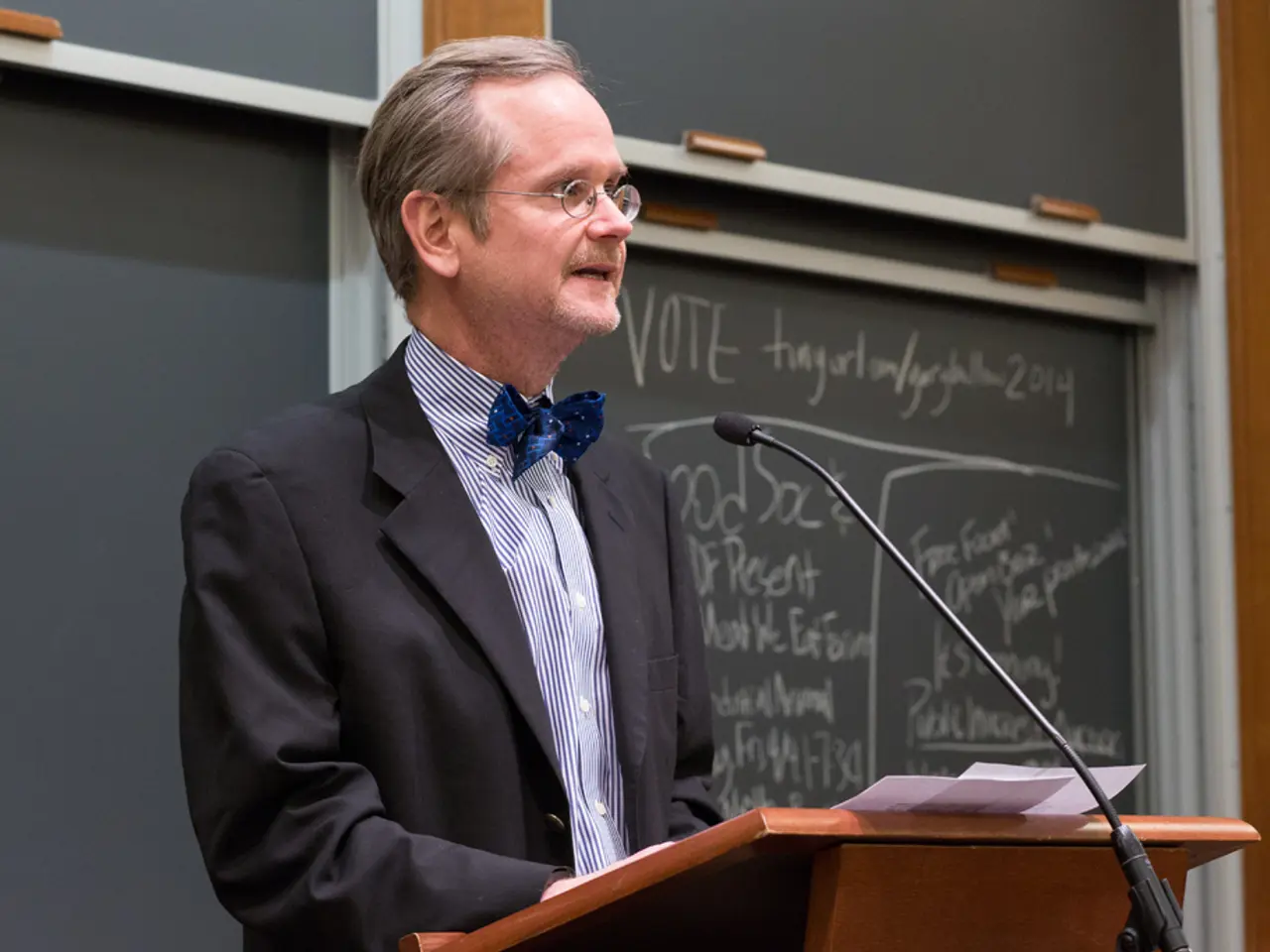No traces of plagiarism were detected in the work of Brosius-Gersdorf, according to the study's findings.
In the heart of German politics, the appointment of Frauke Brosius-Gersdorf to the Federal Constitutional Court has been postponed, embroiled in significant controversy. The Bundestag vote, initially scheduled for July 11, 2025, has been delayed due to emerging concerns about her candidacy, including plagiarism allegations and her views on abortion that have sparked opposition not only within the governing coalition but also from influential Catholic groups in Germany [1][2][3][4].
Brosius-Gersdorf, a renowned legal scholar, submitted her doctoral thesis at the University of Hamburg in 1997, titled "German Federal Bank and the Principle of Democracy. A constitutional law study on the autonomy of the Federal Bank before and after the third stage of the European Monetary Union" [5]. Her husband, Hubertus Gersdorf, completed his habilitation in November 1997 and presented it in the summer semester of 1998 at the same university.
The plagiarism allegations against Brosius-Gersdorf were raised before the planned election of judges in the Bundestag. A review commissioned by Brosius-Gersdorf and her husband concluded that the allegations are unfounded and lack substance [6]. The review, which considered similarities in footnotes, headings, and text passages, concluded that they neither constitute a plagiarism allegation nor do they call into question the scientific nature of the works [7].
However, the controversy has grown, with some members of parliament receiving many emails warning against the election of Brosius-Gersdorf before the planned vote [1]. The coalition government led by Chancellor Friedrich Merz is deeply divided on Brosius-Gersdorf’s nomination. While the SPD had initially nominated her and seemed to have support after Merz endorsed her, conservative factions within the CDU/CSU withdrew their backing shortly before the vote [1][4].
Catholic bishops and laypeople have strongly criticized Brosius-Gersdorf, labeling the controversy as a “domestic political scandal,” primarily because of her stances on abortion and her involvement in federal commissions on abortion law reform, which have alarmed pro-life advocates [2][5]. The outcry has brought together Catholics across a broad spectrum, complicating the political calculations for the ruling coalition, which includes the nation’s first Catholic Chancellor since 1998 [2].
Bamberg Archbishop Herwig Gössl offered Professor Brosius-Gersdorf a personal talk to clear up misunderstandings, emphasizing that he had never questioned her competence as a jurist or her personal integrity [8]. If the ongoing debate about the failed appointment threatens to harm the Federal Constitutional Court, Brosius-Gersdorf would immediately withdraw [9].
The election of two new female judges and one male judge for Karlsruhe has been removed from the Bundestag's agenda, and the parliamentary group could no longer guarantee the agreed support from the coalition partner [10]. CDU MP Gitta Connemann stated that the question will not be decided in talk shows or media, but in the conversation between the coalition factions of the SPD, CDU, and CSU [11]. CDU MP Saskia Ludwig blamed SPD faction leader Matthias Miersch for the situation, stating he should have withdrawn the candidate to avoid these discussions [12].
As the debate continues, the future of Brosius-Gersdorf's nomination remains uncertain. The professor has been cleared of charges of scientific misconduct in a brief assessment [6], but the controversy surrounding her views on abortion and the plagiarism allegations persist. The political and social debates are far from over.
- The ongoing controversy over Frauke Brosius-Gersdorf's appointment to the Federal Constitutional Court extends beyond politics, with economic and social policy implications, as her views on abortion have sparked significant opposition and policy-and-legislation debates.
- General news outlets have reported on the unfolding drama in German politics, with members of parliament, Catholic groups, and influential officials voicing their concerns about Brosius-Gersdorf's nomination, making headlines and shaping the national discourse.




